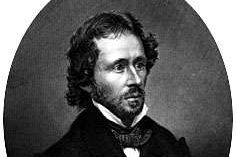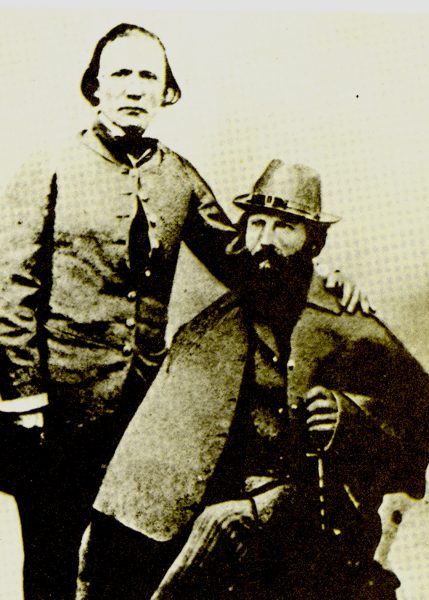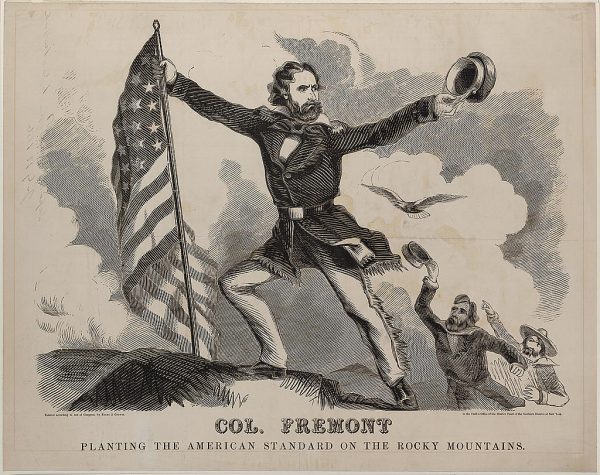Listen to this article
When: 1813-1890
Where: Colorado’s Sangre de Cristo Mountains
Why important: Explorer, Presidential Candidate, Civil War General
Biography

Frémont began his career as an explorer while he was a 2nd Lieutenant in the U.S. Corps of Topographical Engineers. When he was 28 years old, Frémont married the 16-year-old daughter of powerful Missouri senator, Thomas Hart Benton. Though the Senator was very angry at first, he eventually accepted his daughter’s marriage and offered financial and political support to Frémont for his expeditions to the West. In 1841, Frémont mapped the Des Moines River in Iowa. Moving further west, Frémont teamed up with Kit Carson on expeditions through the Sierra Nevada Mountains all the way to Lake Tahoe. He also led expeditions to Utah, Oregon, and California, where he even served as military governor.

In 1845, Frémont set out on his first expedition through the land that would eventually become Colorado with Kit Carson in search of the source of the Arkansas River. Three years later, Frémont lead another expedition along the Arkansas, but when the party reached Bent’s Fort, trappers there told them that they were too late in the season to make it across the mountains before winter hit. However, Frémont wanted to prove that his route to California was passable year round, so he ignored the trappers’ advice and pushed on. The party started off successfully until Frémont made a sudden decision to turn south of the River. As a result, his guide, Richens “Uncle Dick” Wootton and several other members of the party turned back. Frémont and the remaining members became snowbound in the mountains and 10 men died. Frémont was criticized for his poor decisions regarding the expedition and as a result, his reputation suffered.
Because of his strong political connections, however, Frémont was able to regain his reputation and within only eight years after the disastrous expedition, he was chosen as the presidential candidate of the newly-founded Republic party. The party’s main platform was anti-slavery and Frémont’s campaign slogan was “Free Men, Free Soil, Frémont.” Unfortunately, Frémont’s own father-in-law, Thomas Hart, endorsed democratic candidate, James Buchanan, losing credibility for Frémont.

Though Frémont lost the presidential election, his political career was far from over. He served as a U.S. Senator from California, Governor of Arizona Territory, and Major General in during the Civil war. He also created controversy when he issued a proclamation freeing all slaves in Missouri. The proclamation was not recognized by the U.S. government, however, and Frémont was removed from command.
Frémont spent most of the remainder of his life in Arizona and New York, where he became involved in railroad development. Although he never lived in Colorado, he played a key role in its early exploration earning him the nickname, “The Pathfinder” and the honor of having Fremont County, Colorado named for him.
This bio is brought to you by the Colorado State Library
- Literary Libations: Get Lit with DPL and Denver Distillery! - April 8, 2019
- Topics in History: Intersectionality in Colorado: Women’s Rights are Human Rights - March 15, 2019
- Caroline Nichols Churchill: Activist, Suffragist, Author - March 4, 2019
